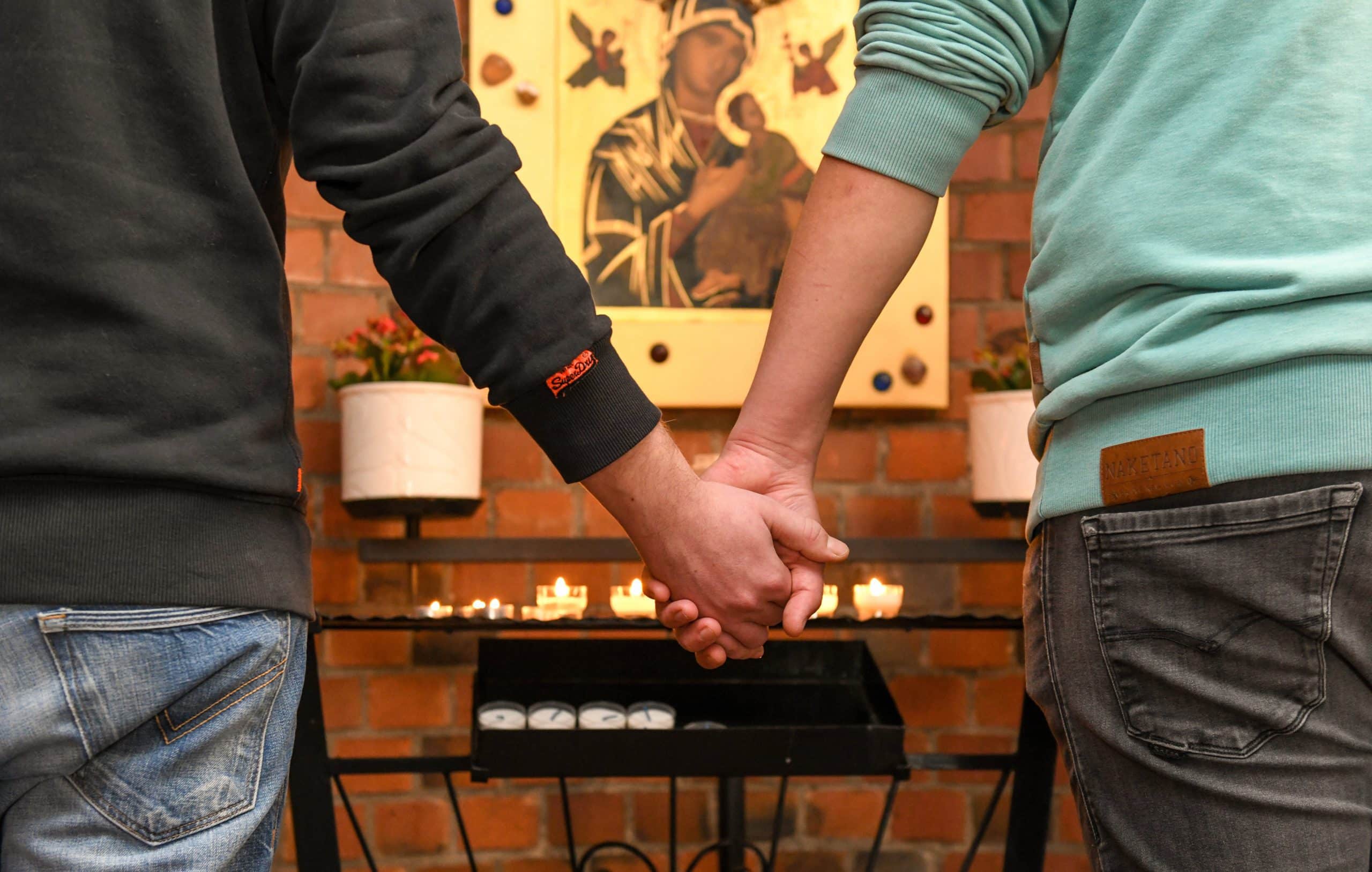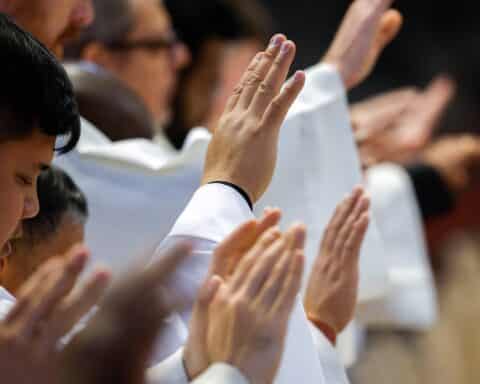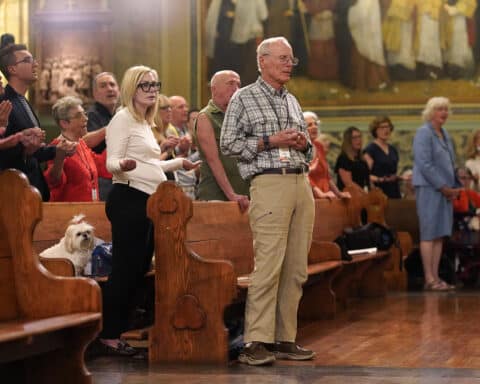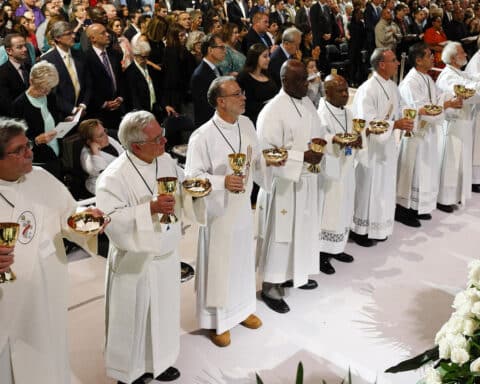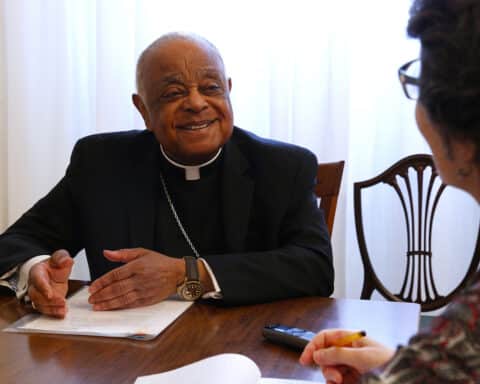Even though the Body of Christ, according to the famous passage by St. Paul (1 Cor 12:12), has many parts, it remains one body. But events — both in recent decades and in recent days — have shown that unity to be increasingly more strained. In the past 50 years, polarization within the Church and politicization of the Faith have become growing problems and causes of great concern. The clergy sexual abuse crisis, which exploded in 2002, has only enhanced those cracks in the foundation.
It is only natural that a Church with more than 2,000 years of history will go through cycles of unity and division. The Church is composed of sinners, after all. But it is undeniable that Jesus Christ was clear about his desire for unity among his people, praying fervently “that they may all be one, as you, Father, are in me and I in you … ” (Jn 17:21).
Of increasing concern to the unity of the universal Church has been the Church in Germany, which has, over the past two years, embarked upon a process of reform called a “synodal path” that began with a focus on clergy sexual abuse. Over time, it has morphed into an ongoing discussion on a multitude of issues, including some of the most fraught: the ordination of women to the priesthood and the Church’s teaching on homosexuality.
In March, the Congregation for the Doctrine of the Faith clarified one point in particular: a question (or dubium) from priests and lay faithful on whether or not the Church has “the power to give the blessing to unions of persons of the same sex.” The answer from the congregation, in which it confirmed the Church’s 2,000-year-old teaching on marriage and sexuality, was, quite clearly: Negative.
“It is not licit to impart a blessing on relationships, or partnerships, even stable, that involve sexual activity outside of marriage — i.e., outside the indissoluble union of a man and a woman open in itself to the transmission of life — as is the case of the unions between persons of the same sex,” wrote the doctrinal office in an explanatory note that accompanied the statement. At the same time, it noted that “the Christian community and its pastors are called to welcome with respect and sensitivity persons with homosexual inclinations and will know how to find the most appropriate ways, consistent with Church teaching, to proclaim to them the Gospel in its fullness.”
Despite its consistency with Church teaching and the natural law, the ruling of the congregation resulted in widespread protests from those within the Church who saw blessings for same-sex couples as a loving and pastoral outreach to those with same-sex attraction. But it has been the German Church that has rebelled most directly. This week, more than 100 German priests and dioceses — without, it must be said, the approval of the local bishops’ conference — have launched the “Liebe Gewinnt,” or “Love Wins,” initiative. As part of that initiative, churches and dioceses all over the country recently offered blessings to same-sex couples in direct defiance of the Holy See’s order. In fact, the word “defy” made almost every headline of every major news outlet that reported on the matter. According to a report via Reuters, one Catholic priest who participated in the “Love Wins” initiative said that the Church has “lost touch with the ‘living reality’ of LGBT+ people.” Adding an extra touch of “va fa Napoli!” flair to the Holy See, many of the blessings were livestreamed.
It could be said that such an event has been a long time coming, especially since the German Church embarked upon its “synodal path” in 2019. In an attempt to head off any potential threats to unity at that time, Pope Francis penned a letter to the German Church in which he warned that “every time an ecclesial community has tried to get out of its problems alone, relying solely on its own strengths, methods and intelligence, it has ended up multiplying and nurturing the evils it wanted to overcome.”
A stronger response and show of unity is now needed from the Holy See, the German bishops’ conference and from bishops’ conferences around the world if unity within the Church is to be maintained. But what is needed even more desperately is more effective catechesis — a clear, accurate and charitable method of communicating what the Church teaches and why — that includes appropriate formation for both students and teachers of the Faith.
Perhaps Pope Francis’ recent formalization of the lay ministry of catechist is a step in the right direction. As Jem Sullivan notes, “through prayer, study and participation in community life, a lay catechist is called to be, at once, ‘a witness to the Faith, a teacher and mystagogue, a companion and pedagogue, who teaches for the Church’ (Antiquum Ministerium, No. 6).” In such a way, the Church’s teachings are passed down from generation to generation, preserving the Body of Christ and answering Jesus’ prayer that “they may all be one.”
Our Sunday Visitor Editorial Board: Gretchen R. Crowe, Scott P. Richert, Scott Warden, York Young

